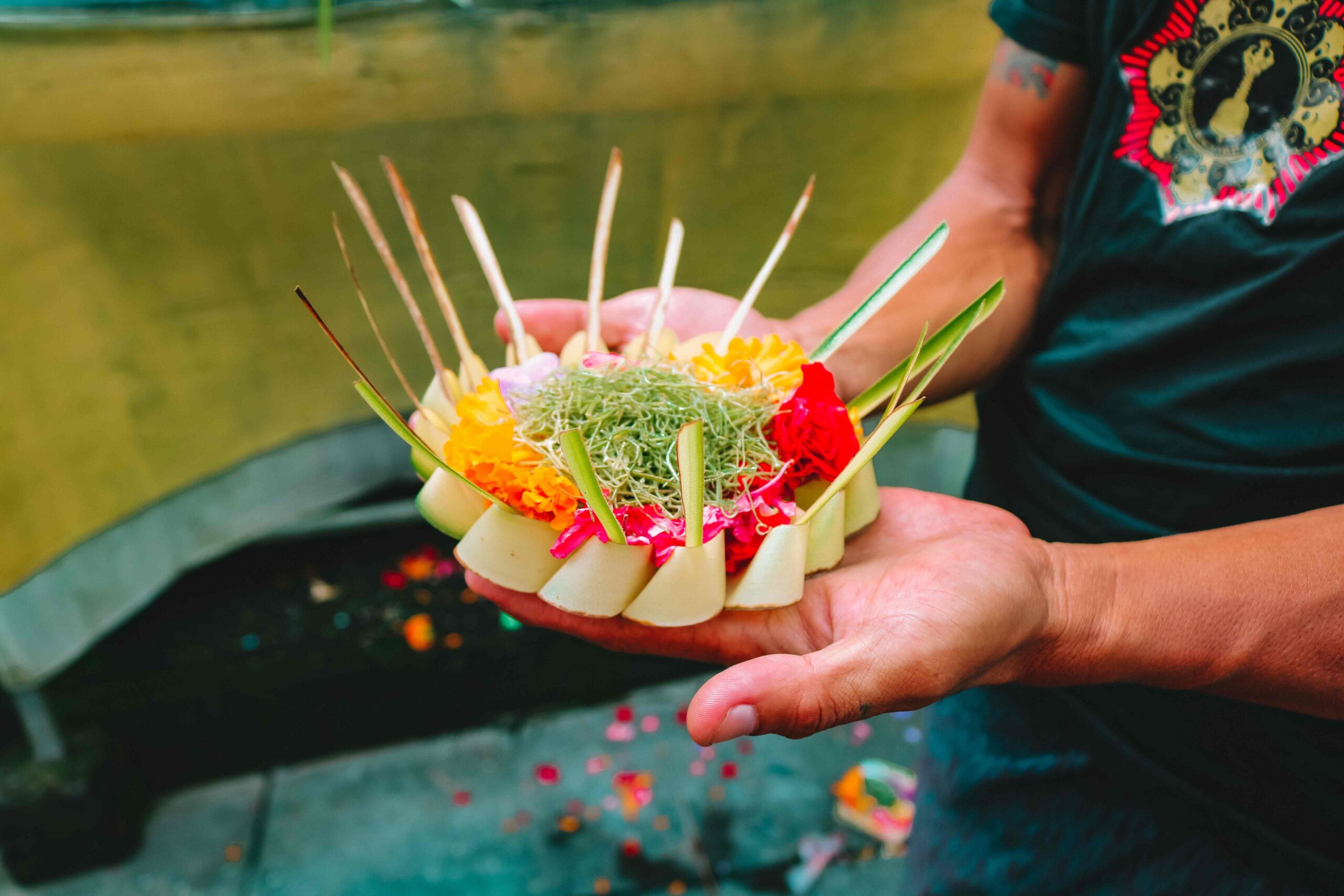Saraswati Day is one of Bali’s most meaningful spiritual celebrations, dedicated to the goddess of wisdom, knowledge, and the arts. It’s a time when temples come alive with offerings, prayers, and quiet reflection, all in honour of learning and inspiration.
In this guide, you’ll learn what Saraswati Day is all about, how it’s celebrated across the island, when it happens, and the deeper meaning behind this unique Balinese Hindu tradition.
What Is Saraswati Day?
Saraswati Day, also known as Knowledge Day, is a Balinese Hindu celebration dedicated to the goddess Saraswati, the divine embodiment of wisdom, learning, and the arts.
It’s marked on the unique Pawukon calendar, which follows a 210-day cycle, making this celebration come around more than once a year.
It is a day dedicated to honouring Saraswati’s role in inspiring true knowledge and learning. It reflects Bali’s deep respect for education, culture, and spiritual purification, with ceremonies centred around temples and natural water sources.
Who Is The Hindu Goddess Saraswati?
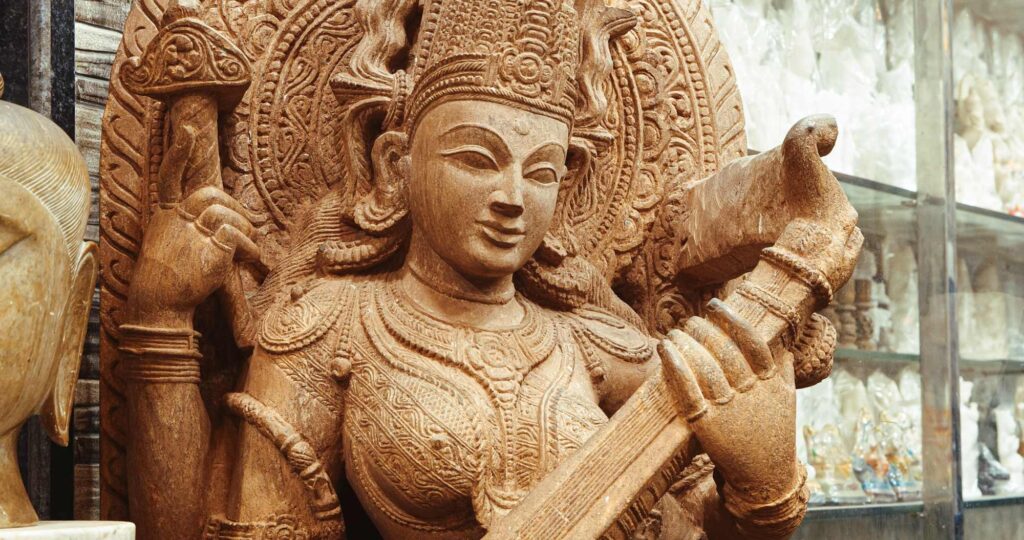
Saraswati, the goddess of knowledge, is often depicted as a graceful figure, a beautiful woman with four hands holding sacred texts, a rosary, a musical instrument called the veena, and a lotus flower. She represents the embodiment of wisdom, science, and consciousness, guiding devotees towards enlightenment and spiritual growth.
In Balinese culture, Saraswati is deeply revered, and her symbolisms, like the white swan and water lilies, reflect purity and clarity. Her association with palm leaf manuscripts and sacred texts highlights the importance of preserving knowledge and education.
When Is Saraswati Day Celebrated?
Saraswati Day falls on a specific day in the Balinese Pawukon calendar, which follows a unique 210-day cycle. This means the festival occurs roughly every seven months in the Gregorian calendar, making it a special and recurring event throughout the year.
The celebration happens on Wuku Watugunung, a week within the Pawukon calendar that is considered especially auspicious for learning, wisdom, and purification. Because the Pawukon calendar operates differently from the Western calendar, the exact date shifts each year.
For both locals and visitors, knowing when Saraswati Day takes place offers a fascinating glimpse into Bali’s spiritual rhythms and cultural heritage.
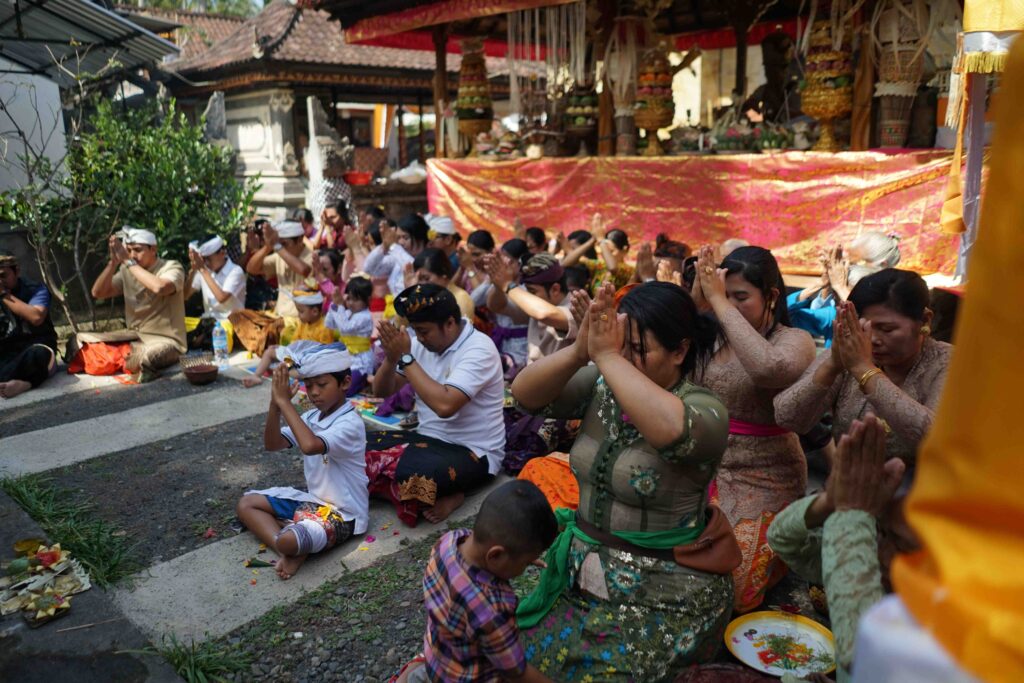
Pawukon Calendar
The Pawukon calendar is a traditional Balinese timekeeping system quite different from the Gregorian calendar. It runs on a 210-day cycle, dividing time into various weeks and spiritual cycles that influence when religious ceremonies and cultural events occur.
Each day holds a specific spiritual meaning, and the Wuku Watugunung week, when Saraswati Day falls, is regarded as particularly significant for knowledge, learning, and purification.
Understanding this calendar reveals how closely Balinese spirituality and daily life are connected. It guides the timing of important rituals and helps maintain harmony between the spiritual and physical worlds.
How Is Saraswati Day Celebrated?
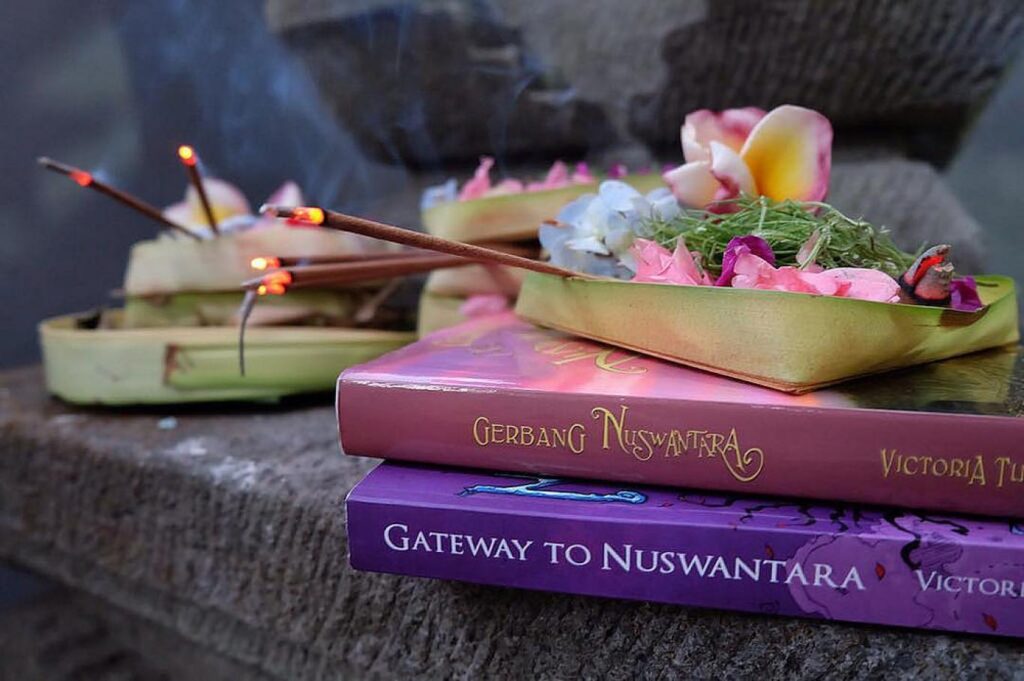
Saraswati Day is celebrated with deep reverence and vibrant rituals across Bali, reflecting the island’s devotion to knowledge, learning, and the arts. The day typically begins early in the morning with visits to temples dedicated to Saraswati, where devotees gather to offer prayers and express gratitude to the goddess of wisdom.
Offerings play a key role in the celebrations. Flowers, incense, fruits, and especially traditional palm leaf manuscripts (known as lontar) are presented as symbols of sacred knowledge and learning. These manuscripts are often beautifully crafted and hold spiritual texts or cultural teachings, emphasising the importance of preserving knowledge through generations.
A central ritual involves the sprinkling of holy water, which symbolises the purification of the mind, body, and spirit. This act of cleansing is often performed near rivers, lakes, or temple water features, connecting devotees to nature’s sacred element. It reflects the belief that just as water purifies the physical world, wisdom cleanses the mind of ignorance.
Schools, artists, and cultural groups also hold special ceremonies and performances on Saraswati Day. Students pray for academic success, while musicians, dancers, and painters honor the goddess who inspires creativity. Families may come together for meditation, scripture reading, or reciting prayers, reinforcing the day’s focus on spirituality and learning.
In Balinese homes and communities, the atmosphere is peaceful and reflective, with an emphasis on respect for education, arts, and cultural heritage. Saraswati Day is more than just a religious event—it’s a communal celebration of the island’s rich intellectual and spiritual traditions.
FAQs
What Is Pagerwesi Day and How Is It Related to Saraswati Day?
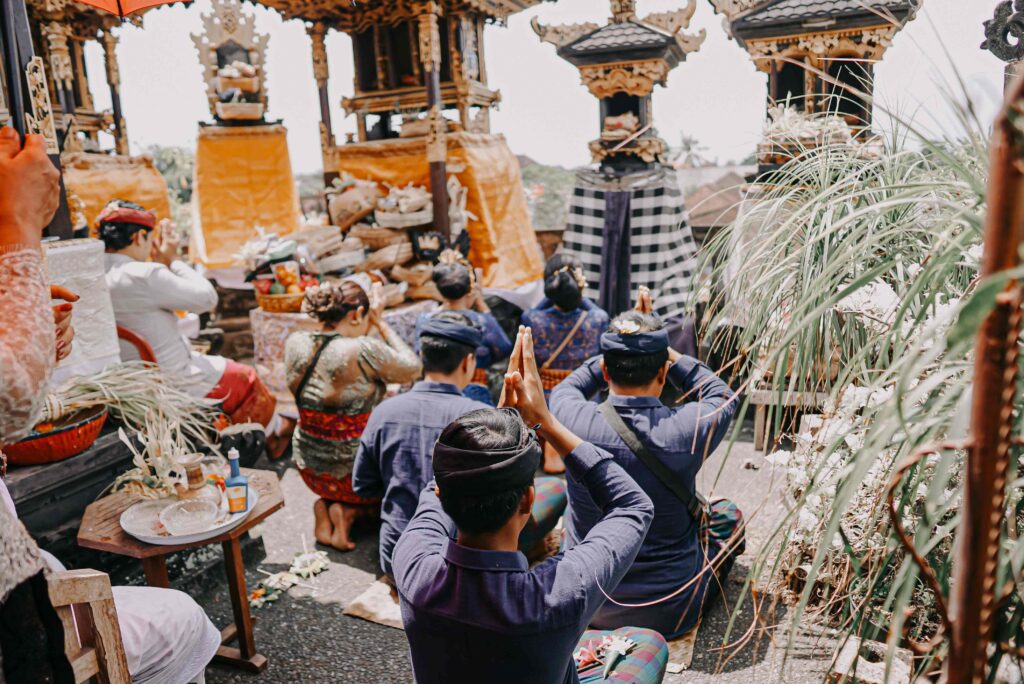
Pagerwesi is another important Balinese festival that follows shortly after Saraswati Day, typically about four days later. While Saraswati Day honours the goddess of knowledge and learning, Pagerwesi, which means “iron fence”, focuses on spiritual strength, protection, and devotion.
Pagerwesi is a day for deep reflection, prayer, and fortifying one’s spiritual foundation against negative forces. Together, these festivals complement each other by celebrating both wisdom (Saraswati) and spiritual resilience (Pagerwesi), highlighting the balance between knowledge and inner strength in Balinese Hinduism.
Why Is Saraswati Called The Goddess Of Knowledge?
Saraswati is called the Goddess of Knowledge because she embodies wisdom, learning, and the arts. In Hindu tradition, she represents the source of all intellectual and creative pursuits, guiding devotees towards truth, clarity, and spiritual insight.
Her symbols, such as the sacred texts, the veena (a musical instrument), and the lotus, highlight her connection to education, music, purity, and enlightenment. In Balinese culture, Saraswati inspires students, artists, and scholars, encouraging the preservation and sharing of knowledge across generations.


Final Thoughts On Saraswati Day
Saraswati Day is a beautiful reminder of the Balinese people’s deep respect for knowledge, wisdom, and cultural heritage. Rooted in Balinese Hinduism and guided by the unique Pawukon calendar, this day blends spirituality, education, and artistry in meaningful rituals that continue to inspire generations.
Whether through temple ceremonies, the purification with holy water, or the offering of sacred texts, Saraswati Day highlights the island’s commitment to learning and spiritual growth. For visitors and locals alike, it offers a chance to witness the vibrant traditions that keep Bali’s rich culture alive.
By honouring the goddess Saraswati, Balinese Hinduism not only celebrates the power of knowledge but also encourages the ongoing pursuit of wisdom in everyday life.

